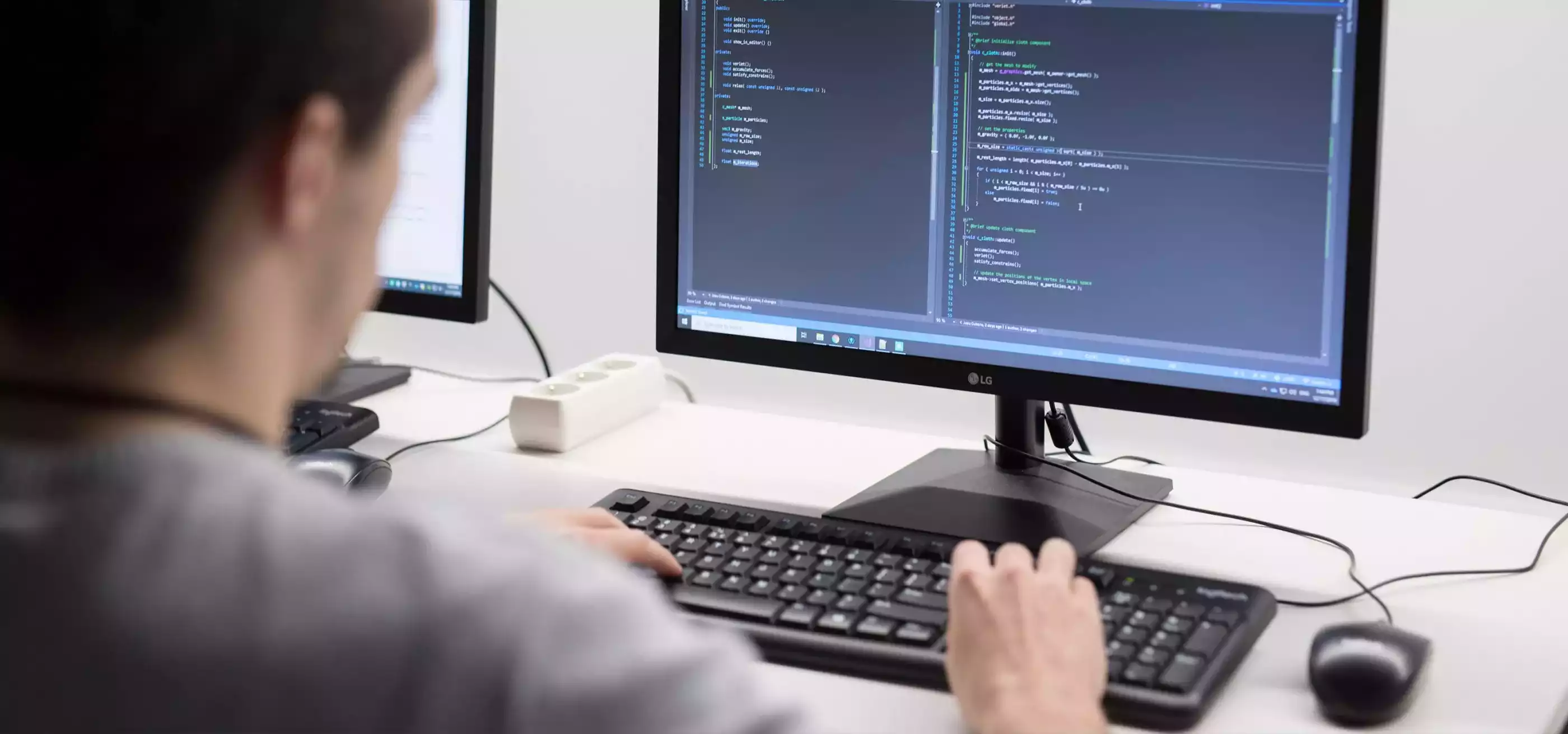When the COVID-19 pandemic first hit Washington State this spring, DigiPen suddenly had to shift to a remote learning model over the course of one weekend. For faculty in the Department of Computer Science, the unexpected switch didn’t actually complicate things too much. “For most of our computer science courses, which already have their grading and submission servers online, it was a seamless transition,” says Computer Science department chair Dr. Pushpak Karnick. As smooth as things went, the department has spent the summer re-examining and improving upon its approach to prepare for DigiPen’s switch to online and phased instruction for the 2020-21 academic year.
“The main concern from CS faculty that we’ve been trying to address collectively has been retaining student engagement,” Karnick says. Acknowledging the reality of “Zoom fatigue,” faculty have made structural changes to a number of computer science courses to better adapt them to an online medium. “One of the primary approaches towards retaining student attention is to divide the lecture content into smaller, digestible chunks,” Karnick says. “Individual approaches may vary for each class, but the overall idea revolves around reviewing and emphasizing current content before moving onwards.” At the same time, instructors are taking a close look at how that increase in the reinforcement period may affect the course schedule. “Let’s say a module might cover something in week five, but with the addition of reinforcement exercises, that might get shifted by a lecture or so,” Karnick says. “Our effort has been to minimize the impacts on the overall sequence.”
To assuage any student anxiety about the shift to online learning, the department has implemented a relaxed schedule for assignment deadlines as well. “We haven’t completely taken them away, because students must maintain a certain schedule, but depending on the course and the assignment, our instructors have provided more opportunities for students to catch up if their ability to submit materials on time is affected by the move to remote learning,” Karnick says. “From our perspective, it’s more important that the students actually get the hands-on experience and achieve the course objectives, even if it’s at a slightly slower pace than usual.”
In order to ensure that students receive the help they need, the department has hired additional teaching assistants available on-campus or online at specified tutoring hours. To reinforce that effort, instructors have already implemented flexible office hours where they can meet and be available for questions from students, beyond the regular interaction times. Students will also see shifts in courses with lab components, including CS 100, CS 120, and CS 170, made to increase opportunities for additional assistance. “With the move to remote learning, we’re giving more emphasis to the lab sections of those courses, so we plan to have more hours available where TAs and instructors will be able to work hand-in-hand with the students and assist them with their specific problems and issues with their assignments,” Karnick says.
Students taking CS 100, a course typically reliant on specialized hardware, will see another new change — one that will physically arrive at their doorstep. “What we’ve done is essentially come up with a kit with all the digital and analog components that are required to implement the labs and assignments in CS 100,” Karnick says. The materials, including everything from breadboards, power supplies, cables, wires, LEDs, relays, resistors, buttons, switches, and an arm-based microcontroller, will be packaged up and sent out to all students taking the course. Bit by bit, assignments involving those components will all add up to a neat final project — a joystick that students will build from the ground up and control using their own code.
“The move to a remote instruction environment has changed the face of higher education as we know it,” Karnick says. “At DigiPen, we are always striving to stay ahead of the curve, to anticipate ways and means for integrating remote instruction with our core philosophy of a foundational, hands-on learning experience. Our students may be remotely situated, but they are still an integral part of DigiPen, and their learning experience is foremost in our minds as we approach the fall semester.”
